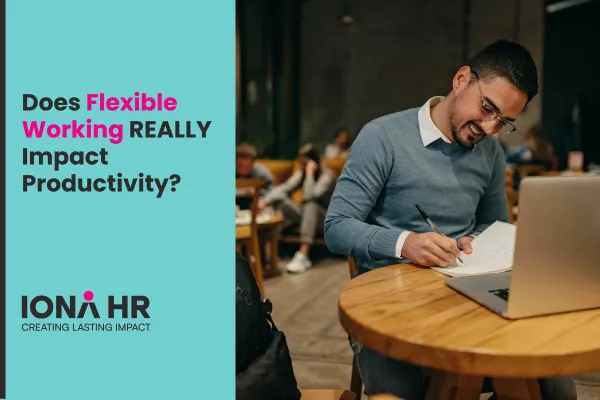
Does Flexible Working Reduce or Increase Productivity?
Does flexible working really impact productivity?
Short answer? Yes.
But probably not in the way you think.
One of the most common concerns we hear from business owners is this:
“If we let the team work flexibly, will everything grind to a halt?”
Fair question.
That’s why we’ve broken down the UK Government’s latest findings on flexible working.
In October 2024, an official Impact Assessment was published as part of the Government’s move to make flexible working a day-one right - unless there’s a genuine reason it won’t work for the business.
Here’s the full report if you want to read it yourself.
But if you'd rather skip the detail, here’s the headline:
Flexible working tends to increase productivity — not reduce it.
The stats speak for themselves:
✅ Nearly 40% of employers say hybrid or home working has improved productivity
❌ Only 13% believe it’s had a negative effect
And managers back this up:
A University of Birmingham survey found:
• 76.5% say flexible working increases productivity
• 62.8% say it improves motivation
• 51.8% say it boosts concentration
Motivation and wellbeing go up too
📊 According to HSBC:
• 89% of employees say flexible working motivates them more than financial rewards
• Feeling trusted and valued leads to better engagement and performance
It’s also a smart move for recruitment and retention
🧲 Offering flexible roles can attract 30% more applicants
👥 Especially parents, carers and people approaching retirement
🔁 And it helps retain experienced staff - cutting churn and recruitment costs
And the wider business benefits?
You’re likely to see:
• Reduced absenteeism
• Lower turnover
• Better skill retention
• Improved long-term performance
So what’s the catch?
It only works when it’s done properly.
That means clear policies, good communication, and making sure it fits how your business runs.
But when it’s managed well?
It can be a game-changer.
Need help creating a flexible working policy that works for your business and your people?
We’d be happy to chat.
